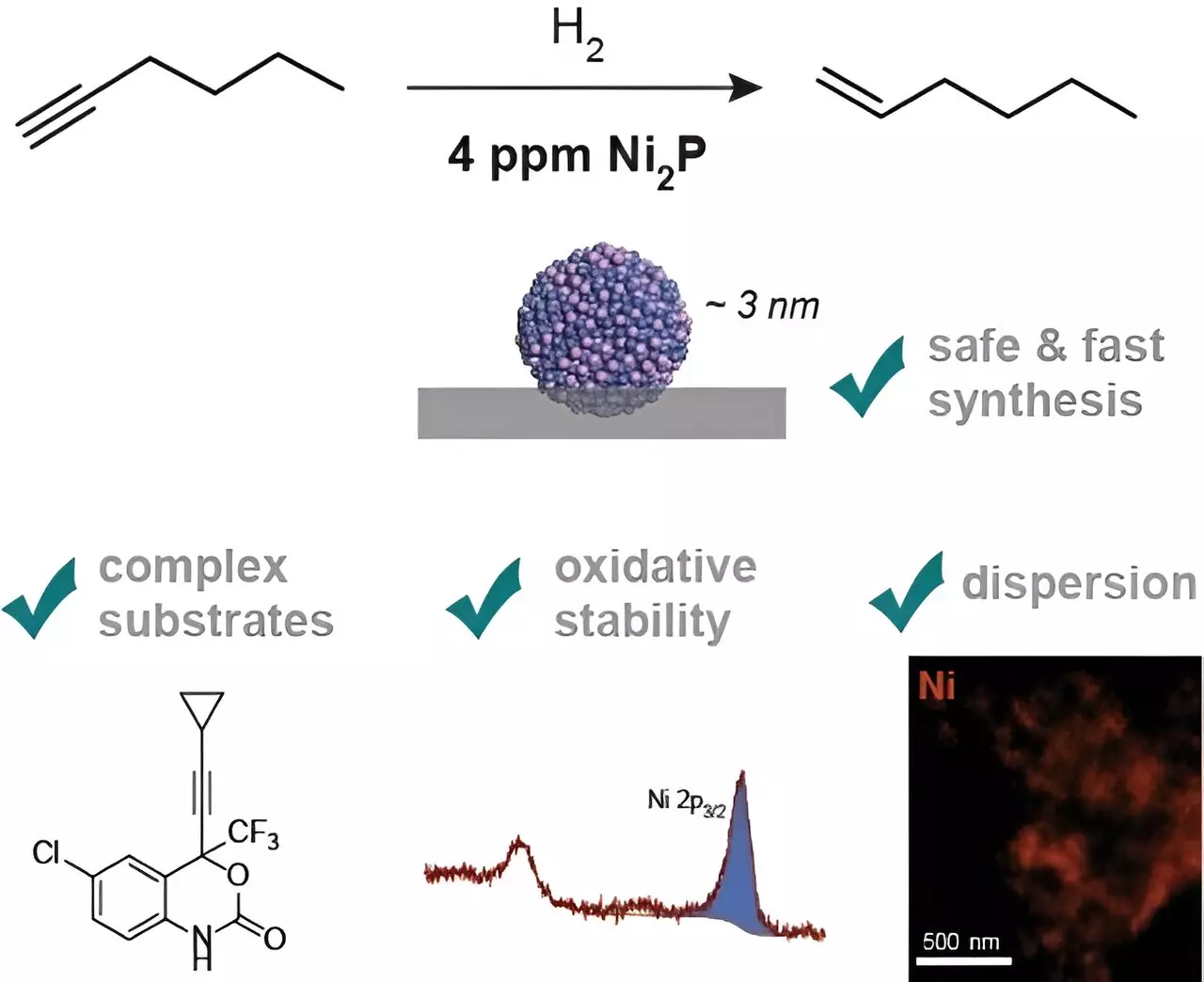Transition metal phosphides have long been considered as potential replacements for noble metal catalysts due to their cost-effectiveness and abundance. However, challenges related to surface oxidation and synthesis have hindered their widespread use in the industry. Dr. Constanze Neumann, along with her team at the Max-Planck-Institut für Kohlenforschung in Mülheim, has made significant strides in overcoming these obstacles.
Traditionally, the production of transition metal phosphides required high temperatures and reactive starting materials, which could be both costly and toxic. Dr. Neumann’s team has developed a novel single-step procedure that utilizes safe and inexpensive materials to synthesize an air-stable, nickel-containing catalyst. This innovative approach has been documented in their publication in Angewandte Chemie International Edition.
One of the key achievements of Dr. Neumann’s research is the high dispersion of the catalyst achieved through the use of surface ligands. These ligands not only protect the catalyst from undesired oxidation but also ensure a broad distribution on the carrier surface. This fine distribution allows for the catalyst to be used in minimal quantities, comparable to conventional palladium catalysts used in the industry.
Another noteworthy aspect of the developed catalyst is its stability even after prolonged exposure to air. Unlike other phosphides that require special handling in a glovebox, the Mülheim catalyst can be safely managed in a regular fume hood. This feature simplifies the storage and handling of the catalyst, making it more practical for industrial applications.
While the current results are promising, Dr. Neumann and her team are not stopping there. Their future research aims to further improve the reusability of the catalyst and eliminate the need for solvents in its production. These advancements could potentially revolutionize the catalytic industry by offering a more sustainable and efficient alternative to existing noble metal catalysts.
Overall, the development of transition metal phosphides as catalysts marks a significant milestone in the field of chemistry and opens up new possibilities for industrial applications. Dr. Neumann’s groundbreaking research paves the way for a more sustainable and cost-effective future in catalysis.


Leave a Reply